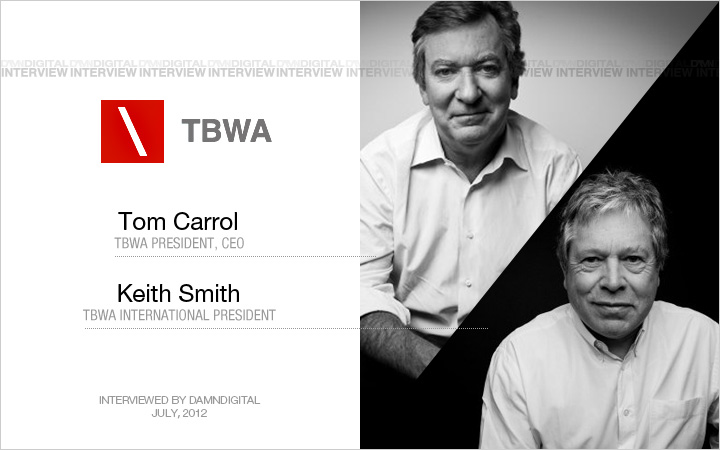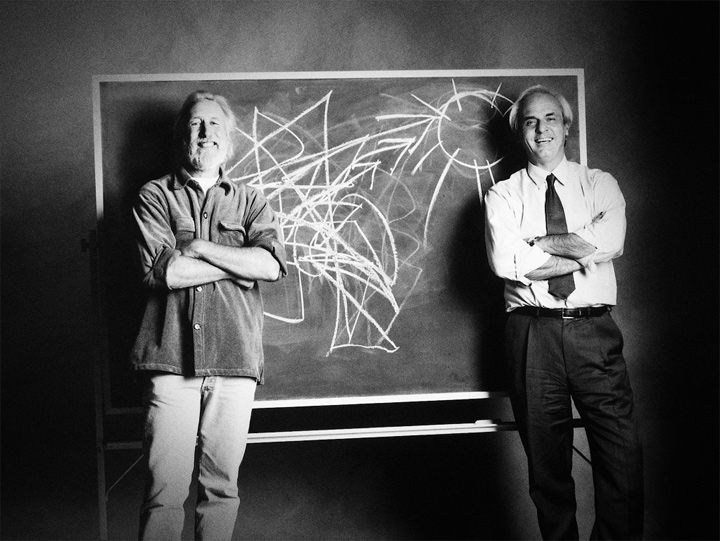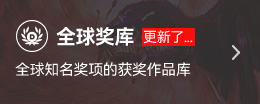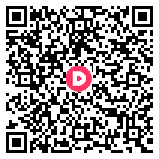
广告业不在流水线上,广告案例不是福特T型车,广告人也一定不会接受弗雷德里克·泰勒的说教。文化是创意的源泉,良好的企业文化,是一家广告代理商得以征服挑剔的客户、桀骜的创意人、以及没有耐心的消费者们的不二法宝。
代理商文化这玩意,任何人放在嘴边一定头头是道,然而从虚无缥缈的说辞转化为持之以恒的实践却并不简单。广告公司在草创时期的特立独行,在其成长为上千人的全球广告网络时是否能够被保留下来是所有管理者的难题。面对不但是地理而且是文化上愈发复杂的客户构成与员工群体,对文化的保守和妥协似乎是更是一种安全。但是身处这样一个竞争空前残酷、无比依赖惊人创意的产业,如果你没“文化”,你就真的没文化。
在扬基佬扎堆的国际广告巨头中,互动中国有幸接触到了一位源自欧洲,受到五湖四海文化熏陶的混血儿,以及它的两位大家长。让我们跟随Tom & Keith的脚步,去一窥TBWA这位年轻巨头的文化观、人才观、他们是如何去“颠覆”、又是如何去“经营”的。
采访/编辑:Wayne Tai
协力:Lena Chen
鸣谢:Rannie Lin @ TBWA SH
(原创内容,转载请注明来自数英网)
(Tom Carrol=Tom / Keith Smith=Keith / 数英网=Q)
\About TBWA
TBWA是在1970年由美国人William G. Tragos、法国人Claude Bonnange、瑞士人Uli Wiesendanger 和意大利人Paolo Ajroldi联合创办的四国联军,这为当时被美国人统治的广告界吹入了一股欧洲之风。1995年在Omnicon的主持下与在创意上更加疯狂的美国代理商Chiat/Day合并成为TBWA\Chiat\Day,逐渐形成了现在的风格与文化。还记得当年惊为天人的《1984》么?本人在早年也是Chiat/Day的一员 DamnDigital借着TBWA上海办公室搬迁酒会的东风采访了其总裁兼CEO Tom Carrol与国际总裁Keith Smith,美国人Tom与英国人Keith在发表真知灼见的同时也充分展现了来自不同文化背景的广告人的不同。
\Welcome to China
Tom:
“首先因为这是中国,我必须来。”
Keith:
“我们目前在中国已经有了3家办公室,将来是否会有第四、第五、第六家,是我们来需要研究的问题。”
Q:我们不认为你们这次来到中国仅仅是为了上海新办公室的揭幕,所以两位来中国的真正目的是什么?
Tom:3个理由。首先因为这是中国,我必须来。第二,作为CEO我必须不停的拜访世界各地的客户们,Keith也一样,碰巧这段时间上海的新办公室开张,于是我们得以在揭幕酒会上拜会客户。第三,我每年都会安排几次去亚洲的行程,我会过来拜访客户,与TBWA中国的管理层们共处一段时间——他们真的很棒,最近赢下了许多新业务。这里很有趣,我们在这边也很成功,所以我就来了。
Q:所以两位有针对中国市场的进一步计划么?
Keith:两年前我们改变了这里的组织架构并建立了大中华区,现在在上海的办公室负责整个中国区的市场,并且客户对此的反响也很好。TBWA有大量的全球客户:日产、苹果、麦当劳等等,我们现在也有不少强大的本土客户,我们本身也在进一步全球化。而我和Tom到这边来的一个重要目的就是与本土客户在一起,帮助他们将其业务从本土发展到全球。
Q:你们是如何看待中国本土客户的?我们知道有些评论认为他们在广告业务方面需要学习更多。
Keith:让我们去告诉客户他们何时该走向全球化,这样太傲慢了。不过我们可以通过TBWA的国际网络来帮助他们将本土业务全球化。
Q:那么两位对中国的二三线城市又是怎么考虑的?我们知道一些大的代理商网络例如奥美已经在成都、大连等地有所布局。
Keith:因为有麦当劳这样的客户,我们已经在二三线城市展开了业务。当然我们并没有真的在那些城市开设办公室,我们通过这里为麦当劳在二三线城市进行布局。然而是否有必要真正的在那些地方开设办公室实体,这也是我们两个上海之行的原因之一。我们目前在中国已经有了3家办公室,将来是否会有第四、第五、第六家,是我们来需要研究的问题。
\Culture Matters
Tom:
“现在我们的董事会里出现了巴西人、亚洲人,世界各地的人,这为我提供了一种崭新的观察世界的方式。我们是一家文化多元的公司,这一点是我们的巨大优势。”
“你无须将文化这样的东西强加于人,文化是磁铁,自己会吸引人,就像Lee Clow, Chiat/Day一样,他们阿是磁铁,我想我们是幸运的。”
Keith:
“不,TBWA是相当民主的一家公司,我们不会自上而下的指示员工去干这干那。”
“对广告公司来说拥有自己的强大的文化根基是最重要的事,然后你才能在此基础上发展自己的业务。”
Q:几周之前我们采访了DDB的首席创意官Amir Kassaei,Amir表示他每天(因为工作繁忙)只能睡三到4个小时,你们呢?
Keith:在当前的环境中你不可能有时间睡大觉,因为你必须24/7保持在线的状态,你手头永远有一堆问题要处理。Tom和我每周7天都需要保持随时可以联系到的状态,这也是我们能够将公司管理好的唯一方法。我的意思是当你真正的把自己“全球化”了,你将会24/7的面对做不完的工作。
Tom:我们没得选啊……我至少没有他(Keith)那么工作狂,他每时每刻都在工作,每时每刻都在赶飞机,每时每刻都在接电话。我一直努力躲起来,但是人们总会找到我,但是他连躲都不躲。
Keith:所以这是一个道理,你也知道你采访过的人中有那么一部分也和我们一样。事实上当你有了许多全球客户之后,在每天的任何时段他们当中的一些人都会在工作,而当他们在工作,你也必须工作。
Q:那么二位作为TBWA最高层的管理者,是不是意味着从你们口中说出的话就是TBWA的“官方命令”?
Keith:不,TBWA是相当民主的一家公司,我们不会自上而下的指示员工去干这干那。我们会让员工从公司的最底层开始经营它,我们不是那种老式的老板一言堂的公司。
Q:这一阵广告业内的两大新闻是WPP收购AKQA,Publicis收购BBH。很多人会觉得如果控股公司有足够的资本,那么单纯的买卖公司会比经营真正的业务更有利润,对于这样的观点两位的看法是?
Tom:我认为要么你拥有创意,或者你可以买创意。我们倾向于成为一个拥有创意的公司,然后发展壮大这些创意,我们不大可能会去够买理念或创意。广告业总会有有利可图的收购机会,但这不是我们的策略。相比于收购公司买下创意这种手法我们是自己培育、发展创意的类型。
Keith:如果你不停地收购公司,那你极有可能会失去自己的文化身份。对广告公司来说拥有自己的强大的文化根基是最重要的事,然后你才能在此基础上发展自己的业务。(收购这种行为)无论对被收购公司还是控股公司来说都不利于企业文化身份的发展,公司只是一个收购的机器,只关注公司规模的话就不能为客户的利益服务。
Q:和Omnicon的其他一些广告公司,例如DDB,BBDO相比,TBWA的优势在什么地方?
Tom:我们和他们不同。你要知道DDB和BBDO比我们早出现太多,他们都有超过80年的历史了,而我们从创立到今天才30年有余。我们比他们更年轻,也更为不同。我们有不同种类的客户,我们的组织架构不同,我们和他们分别在特定的细分市场中保持优势,你知道我们在中东和这里(亚洲)的力量很强大,我们在洛杉矶的办公室很庞大,BBDO在纽约的办公室很庞大,DDB在芝加哥有一座很大的办公室,而且我们随时随地在与这些公司竞争。
Tom:其实不同之处在于:我认为我们能和任何一家公司竞争。在中国我们和Leoburnett,Ogilvy&Mather,Wieden Kennedy, BBH这些机构竞争,在洛杉矶我们与当地非常出色的一家公司Deutsch竞争西南航空的比稿。所以总的来说,我们既和Crispin+Porter, Wieden Kennedy, BBH竞争,也和BBDO, Leoburnett, Ogilvy&Mather有竞争关系。
Tom:我能这么说,没有任何一家公司能像我们这样勇于挑战,我们能正面迎接任何挑战。在大客户或者诱人的机会、流行文化命题面前,我们无所畏惧,敢于和任何人竞争。我们能做任何我们想做的事情,所以到底TBWA是更优秀还是更不同?我想答案是后者,我不觉得自己比别人更好在哪,只是不一样,我们更年轻。
Keith:我们更迅速,而且我觉得我们比较聪明。我们有最好的策略,因为别人没有这样的策略所以我们更有优势。我们把这个策略推广到全世界,当我们最初创立Disruption(颠覆性创意)的时候,每个人都认为不管在哪它是不可能奏效的。但是现在它在纽约奏效了,它在每个地方都奏效了。任何一个想要找到进入市场的新途径的聪明的客户都该来TBWA,因为我们能够为他们提供这样的新线索,新途径。
Q:Keith提到文化对于代理商有多重要。他是英国人,你是美国人,在TBWA这样一个多元文化的大家庭里,文化除了碰撞出创意之外,是否也会造成冲突呢?
Tom:是的。14年前回到TBWA的时候,我是董事会上唯二的美国人之一,那里有法国人、荷兰人、英国人……没去那儿开会之前我都不知道英国人和法国人有多互相憎恨对方,他们会互相勾心斗角,至于斗些什么反正我这种单纯的美国人完全摸不透。现在我们的董事会里出现了巴西人、亚洲人,世界各地的人,这为我提供了一种崭新的观察世界的方式。说实话,我不想当一个美国人,虽然我的确是,但是我的行事和逻辑都不“美国”。我们是一家文化多元的公司,这一点是我们的巨大优势。Chait/Day也是如此,BBDO也是如此,(国际化的)大公司最终都会如此。实话实说,我不会去美国式的公司里工作,那样的地方太无聊了。你能想象(企业)在全球化、网络化的同时还是一维的吗?
Q:那么当TBWA在全球部署战略的时候,会不会有意的在分公司部署自己的企业文化?
Tom:这又是一个另一个好问题,一个非常好的问题。我们在媒体艺术上有自己的核心方法论DISRUPTION,即颠覆性创意(详见百度百科)。像你提过的Jean-Marie,Lee Clow这些人想要有这种能够为他们所依赖,正确指引他们前进的东西。我们没必要去把文化强加于他人,“/”的标识就在这里……如果你去巴西,你以为你到了洛杉矶;如果你去南非,那可能看起来像阿姆斯特丹,而阿姆斯特丹又看起来LA,这你无需告诉任何人(他们也能明白)。同样的道理,你无需将文化强加于人,人们自然会理解它。
Tom:我们真正擅长的东西是,“我们每月强调一些事实,借此经营TBWA”“我们早在大众流行Twitter和Facebook之前就有Twitter来源,有Facebook的主页”“TBWA是能让你走出去的一个地方,我们有大量的培训,非常非常多的培训。我们有专门为30岁左右的年轻人开设的Tiger学院,我们会带他们走遍世界各地。可能这次是中国,下次是印度,在下次是…我会亲自带领这30个人去某个地方,今年是巴黎,去年是纽约,前年是上海。我们就这样不停地换地方。。。让这些人不停地迁徙。”
Tom :“我从来没有在同一个地方开过集团会议,我们每次都在不同的地方。所以如果有次是在纽约开会,对我来说把所有人召集到纽约不是件难事。“各位,来吧,我在纽约等着你们”我不想过那样的生活!你无须将文化这样的东西强加于人,文化是磁铁,自己会吸引人,就像Lee Clow, Chiat/Day一样,他们阿是磁铁,我想我们是幸运的。”

TBWA的两位创意大佬:大名鼎鼎的Lee Clow与颠覆性创意的发明者Jean-Marie Dru
\Talent To Attract Talent
Tom:
“钱与认可。员工希望得到的是合理的薪水与被认可的感觉。如果你是个创意人——我不管你是不是一个好相处的人——你一定是为了让自己的天才被认可才将入这个行业的。”
“这不是无政府主义,这是一种“被完美规划的混乱”。(It isn’t anarchy, it’s just well planned chaos. )”
“广告是一门关于直觉与互动的产业。(It’s about intuition and interacts.)”
Keith:
“TBWA是一家非常民主的公司,每一个员工第一次踏进公司我们就会告诉他们:‘你可以来为我们最大的客户服务。’我们不会自以为是的说:‘你,做这个客户。’”
“并且因为我们在全球都拥有最好的创意人,所以这项资源也会像磁铁一样吸引更多的优秀人才来为我们工作。”
Q:像TBWA这样的大型代理商通常都会将工作环境装点的十分漂亮与舒适,厨房、沙发、游戏设施一应俱全。但是也有一种声音认为这种“家一般的周到”也会让员工不知不觉工作得越来越晚……
Tom:这是广告业。广告业没有朝九晚五,你不知道在什么时候创意会蹦出来。有些时候你必须连着5天每天工作18个小时,然后再连着放四天假。你必须把工作完成,但是你又不知道好创意什么时候会发生。而在一个(生产)创意的环境中,员工必须保持舒适、放松、可以四处走动、必须能够进行思考。对我们这样的创意公司而言,办公环境实在是非常非常重要。这并不只是针对文案与设计师这类“创意人”,而是针对公司内部的每一个人。你需要保持灵活、四处走动、绞尽脑汁想出新点子,而不是窝在你的办公桌前对着电脑写代码。你所做的不是银行业,也不是会计,你所做的是绞尽脑汁想创意,所环境非常重要。你们有看过我们在洛杉矶的办公室么?
Q:是的,从你们的官方网站上看到过。
Tom:那就对了。那里是世界上最有创意的办公室。当你在那里工作,你能体会到那是一个不断运动的地方,到处走动,喝杯咖啡,来一杯啤酒,或者来两杯啤酒,然后继续想创意。因为如果永远只是坐在桌子前,三天之内你就想不出任何的好点子了。

TBWA\Chiat\Day 位于洛杉矶的办公室——"An Advertising City"
Q
:所以某种程度上广告业其实挺累人的,而人才对于广告公司来说却是至关重要。两位觉得用什么方法才能够最有效的打动员工呢?
Tom:钱与认可。员工希望得到的是合理的薪水与被认可的感觉。如果你是个创意人——我不管你是不是一个好相处的人——你一定是为了让自己的天才被认可才将入这个行业的。所以我们必须保证真正有天才的人为我们所用,我们给他们最高端的客户,我们会给予他们认可。
Keith:这样做才是正确的。TBWA是一家非常民主的公司,每一个员工第一次踏进公司我们就会告诉他们:“你可以来为我们最大的客户服务。”我们不会自以为是的说:“你,做这个客户。”我们为那些有创意,并且有进取心的人才创造了非常好的空间。
Tom:我们在公司内部保证了任何人都可以对任何人说任何事情。任何人都可以向我说他们想说的东西,并且他们不会因为诸如对我说:“你的主意太蠢了。”而受到任何责罚——事实上他们经常这么对我说话。我不能忍受那种畏首畏尾的工作环境,我希望每个人都能畅所欲言。这不是无政府主义,这是一种“被完美规划的混乱。”(It isn’t anarchy, it’s just well planned chaos. )因为混乱才能诞生突破性的创意,你需要去破坏,需要去颠覆。
Q:另一方面,你们选择工作伙伴的标准是什么?对于新员工,他们需要必备哪些素质?
Keith:每个TBWA的员工都是创意人。我们不会将员工看成“你是做客服的,他是做创意的。”我们一直认为TBWA是世界上最有创意的公司之一,所以我们只雇佣最有创意的人才,不管他们是学什么出身。我们为那些希望为大客户做出与众不同的精彩作品的人敞开大门。
Keith:成为TBWA员工的门槛非常高,因为我们要最好的那一批,并且因为我们在全球都拥有最好的创意人,所以这项资源也会像磁铁一样吸引更多的优秀人才来为我们工作。
Keith:对于新员工,我们需要的是野心、个性与愿意改变的决心。
Tom: 我喜欢幽默、聪明的人。事实上在这一行没有什么金科玉律为你所准备。世界上没有一本关于营销的书值得一读,也没有一本关于广告业的书值得一读,我从来没见过任何一本。广告是一门关于直觉与互动的产业。(It’s about intuition and interacts.)而“直觉”就包括了幽默感,包括了对如何让人们活跃起来的了解。所以有一个直觉非常敏锐的大脑你才能在广告圈内玩的转。你需要抓住人们的注意力,给他们想要的东西,然后反过来请他们为你的品牌做出贡献。这里面就需要直觉。
Q:说到人才,我又想到一个问题:你们是怎么看待中国本土的创意人的?
Tom:他们每天都在变得更强大。相比10年前他们变强了太多。最近几年我们在中国获得了许多突破性的发展。
Keith:你自己看就会知道。要知道是TBWA中国用阿迪达斯的案例拿到了中国本土第一个戛纳金狮,而且还是早在2008年。这个案例是中国创意人开始不断赢下戛纳狮子们的开始。世界上最好的代理商在中国的办公室里充满了中国的年轻人,并且尽可能多的吸收这些本土人才是非常重要的一件事——不管你喜不喜欢。这些人将会改变世界。
Tom:你知道昨天晚上我与客户们讲了一个什么故事么?10年前,当我走进TBWA上海的办公室,每个人都保持沉默,看上去像是被吓到了。5年前我再度走进这里,所有人都在议论:“那是谁呀?”而今年他们会主动过来与我握手:“Hi Tom,你好,我是Jo。”从担惊受怕到热情开放,只用了10年。
Tom:而整个广告行业,整个创意部门也在发生着这种变化。越来越多的中国年轻人才涌现出来,越来越多的中国人才走向戛纳。不过(中国创意人的强大)还需要时间,但是他们已经对自己有了信心。
Q:你们说他们正在变得越来越强,那本土创意人的水准是否已经达到了国际性的标准?
Tom:当然啦。你们和我们没有什么不同,虽然目前广告创意界依然被美国人和英国人所统治,但是巴西人、阿根廷人、荷兰人,许多许多国家的天才已经在这一行里有立足之地。中国创意人也是如此,这只是时间问题,如果你去观察中国的年轻人,你一定会同意我的看法。
Q:既然如此,那我想问一个不太客气的问题。如果中国本土创意人如两位所说的那么强大,为何在大陆广告圈中他们总会遇到薪资与职业晋升上的不平等?甚至有时候不如港澳台同胞。在TBWA中有类似情况发生么?
Keith:没有,TBWA中没有等级之分。台湾广告人在这个行业的实践要比大陆广告人长很多,如果他们有获得更好的机会,这是唯一的原因。
Keith:你要知道,广告在中国大陆是新兴产业,只有十几年的历史。它还需要时间(去发展),并且它的发展速度已经越来越快了。所以我们一直在这里寻本土人才,并且寻找那种愿意在世界各地工作的中国本土人才,TBWA一直以来都有让员工在全世界不同的办公室工作的传统。我们会和他们说:“你愿意去纽约或者伦敦工作一段时间么?”
Tom:我们的洛杉矶和纽约办公室都有中国年轻人的身影,他们有一些在美国长大,有一些在美国读大学。很有趣的是,你的观点是中国与中国的广告人才(被低估了),而的我观点正好相反。因为我感觉到中国的人才就像脱轨的火车一样前进的速度越来越快,野心越来越大,而且已经无法被阻止,也许你看到的和我不一样……
Keith:不,你说的很对,不过你也要考虑到广告业的数字化革命为中国的青年人才打开了这项产业的大门。像我们这样出生在30秒TVC时代的人已经落伍了。
Tom:我们老了。
Keith:所以中国的年轻人拥有的是一套(与我们完全不同)的技能,他们将打开一个全新的未来,某个人坐在这里(上海)就能够为远在北美的品牌服务。
\Keep Ahead Of The Clients
Tom:
“要是客户人看起来还不错只是他不需要创意,那我会告诉他你何不去找不关心创意的公司,因为外头有很多公司愿意拿着你的钱为你做出一些劣质的广告,双方都能获益,但我们不是这样的公司。”
“你不能将苹果与世界上其他任何一家公司相比,坦白说,我们的其他客户会对我们开门见山:‘我们不是苹果。’”
Keith:
“先客户一步(Keep ahead of the clients),如果你不比客户先考虑到他们的业务问题,竞争者会不留情面地发展壮大自己的品牌和业务。”
“在中国有多少广告公司?太多了。如果你不能比客户和市场预期提前一步,那你就会陷入困境。”
Q:两位都是Account出身,对吗?
Tom: 对。
Q:我们谈到了客户管理的问题,问个棘手的问题,TBWA挑选客户的标准是什么?你们的确会挑客户,是吗?
Tom:是这样的,我们是非常有创意的公司,Chiat/Day, TBWA都是创意机构。要是你不懂得和创意打交道你是没办法在TBWA做客户服务的。我不清楚你们能不能区分,如果客户上门找我们,我们就知道他是不是在找创意,好的创意,要是他们不想要好创意他们是不会找我们的。
Tom:要是客户人看起来还不错只是他不需要创意,那我会告诉他你何不去找不关心创意的公司,因为外头有很多公司愿意拿着你的钱为你做出一些劣质的广告,双方都能获益,但我们不是这样的公司。客户来找我们是因为他们想要好的创意,所以当有客户寻求代理的时候我们会清楚的知道我们追求的目标是否一致。
Keith:看看我们所拥有的东西,别忘了我们有令人难以置信的策略工具——Disruption(颠覆性创意),如果我的客户不喜欢Disruption,如果他们不想通过做一些不同的尝试来使自己的品牌变得更强大,这就变成自我选择的问题了。好的方面在于现在聪明的客户会说:“嘿,我们不能像其他人一样做大家都在做的事,我们需要做一些不同的事。”而这正是“颠覆性创意”所能做的,我们的这个理论帮助我们抉择该客户是否适合与我们合作。
Q:好,另一个事实是数十年来你们已经成功地保持与自己核心客户(像苹果、阿迪达斯、绝对伏特加)的关系,有什么秘诀么?
Keith:先客户一步(Keep ahead of the clients),我是指你必须不断地激励自己,不断地产出好的作品,还有你必须先客户一步。如果你不比客户先考虑到他们的业务问题,竞争者会不留情面地发展壮大自己的品牌和业务,后果将会是你丢了这个客户。
Tom:客户都想要好的作品,好的创意,所以我们招纳有创意的人才,逐步建立自己的文化。像苹果、阿迪达斯、尼桑这样的客户都追求好创意。然后好的创意人才愿意来TBWA,我们才能创造有自己活力的文化。正是因为有客户在鞭笞我们创意还不够好、还要更好,我们才能在原来的基础上更前进一步。公司就是这样创造出自己的生机,自己的文化。所以在广告界有这么个说法:“客户总是能得到他们想要的创意”。那些客户要好的创意,客户自己创造了文化、活力和正面能量。
Q:所以就是说你使自己成为客户的最好选择。
Keith:没错 Tom:你必须这么做。
Keith:这是一项艰难的工作。在中国有多少广告公司?太多了。如果你不能比客户和市场预期提前一步,那你就会陷入困境。
Q:最难回答的问题来了:有些客户很大,有些客户很特殊。但是“苹果”是又大有特殊。像苹果这样的客户是每个公司都觊觎者想分一杯羹的,那么你们如何与像苹果这样重要的客户维持一个稳定的合作关系的?
Tom:你不能将苹果与世界上其他任何一家公司相比,坦白说,我们的其他客户会对我们开门见山:“我们不是苹果。”苹果有它的独到之处,世界上没有其他客户像它一样,苹果公司的运营机制和别人都不一样,我们和它的合作关系也自然是完全不同的。运作苹果的Media Arts Lab我们独创的主张,我们在这方面有优良的管理,所以苹果这个客户是个艰难的挑战,它很特别。我们之间有了很长一段时间的特别的合作关系,如果你有兴趣研究他们的运作机制,这是一个不走寻常路的亲密的文化,我们正附属于这个文化。好的公司将自己的文化与客户的文化相融,然后自然就奏效了,你能看出不同。
\The Backslash
Tom:
“正如你所知的,好的设计师都热爱“简洁”,像Lee Clow设计出‘\’这样简单却蕴含无限意义的符号。这全是他的功劳,‘\’是Lee Clow的,没有别的解释。”
“他是我在职业生涯里遇到的最完美的人,他是我认识的人里面最才华横溢,最有礼貌,最好的人。”
Q:说到TBWA logo里的“\”(Backslash),它原先就是TBWA的logo还是后来加上去的?
Tom:这是Lee Clow的心血,是他发明了“\”和“Chiat\Day”。然后我们把“\”带到了TBWA。事实上Lee Clow非常喜欢设计,他是一名真正的设计师。正如你所知的,好的设计师都热爱“简洁”,像Lee Clow设计出“\”这样简单却蕴含无限意义的符号。这全是他的功劳,“\”是Lee Clow的,没有别的解释。他对自己的这个设计也很喜欢,是他赋予了“\”全部的意义,这也是为什么他是最好的创意者:他能够为最简单的理念赋予意义,别人都想不到的意义。

Q:他退休了吗?
Tom:没有,他假装自己退休了,他九月份会在法国,他今年没有去戛纳,明年应该会来。他是我在职业生涯里遇到的最完美的人,他是我认识的人里面最才华横溢,最有礼貌,最好的人。
Q:他可以和Steve Jobs一起工作。
Tom:没错,他是Jobs的反面。我们和他一起在做一个很重要的阿迪达斯项目的事情的时候,他做了很多事情,多的超乎你的想象。但是他为人很低调,这是他想要的,他想达成的期望是自己能怡然处于任何地方。所以他就是这么一个好人,这也是你见不到他的原因,他太低调了,他有自己的计划。
Original Interview Transcription In English:
INTRODUCTION:
The advertising industry is not like Detroit automation, the advertising work is not a Ford Model T, and the advertising people are not necessarily convinced by Frederick Taylor. Culture is the source of creativity; on the other hand, good corporate culture is how an advertising agency can manage its picky clients, unruly creative people, and impatient consumers.
Anyone can talk about the culture of advertising, however, to put it into practice is much more difficult. An advertising agency can act its own way in the initial stage, but the challenges comes when it becomes a global network made up of more than 11,000 people.
Facing the geographical and cultural differences of the clients and employees, sometimes it’s easier and safer to go the conservative way. However, in order to survive in the competitive advertising industry, which requires significant creativity, the culture of the agency is the key. In an advertising world dominated by the US companies, DamnDigital is honored to get to know a European-American hybrid network and interview two of it’s key leaders. Let’s follow the steps of Tom Carroll and Keith Smith and go deep into how they disrupt and manage the agency, as well as the origin of TBWA and its talent.
Interview:
Wayne: Weeks ago we interviewed DDB CCO, Amir Kassaei. He said he didn’t sleep much, only three to four hours a day. What about you?
Keith: You know, it’s impossible now in the world we’re living in, which is 24/7. It’s impossible to sleep because you’re always online; you’re always having issues that are rumbling all the time. Tom and I are in constant touch, seven days a week, because that’s the only way to truly manage a company like this one. When you’re truly global, when you’re online 24/7, you have to be “doing stuff” the all the time.
Tom: We have no choice… I’m not as bad as he is. He (Keith) is nuts – he works all the time, he flies all the time, he’s on the phone all the time. I try to hide, but they find me. But he doesn’t hide.
Keith: It’s a fact of our business, because you know we have a lot of global clients who are online the whole time. I mean, somewhere in the world, somebody in always working.
Wayne: So, being very top executives as you two are, the word come from both of your mouths is the “official announcement,” is that right?
Keith: We have much a more democratic company. We don’t just have people from the top-down telling people what to do. We have people who drive the company from the bottom. We are not an old-fashioned, hierarchical company. And in China we have some fantastic, very smart people working in this company and we are growing very fast.
Wayne: We don’t really think both of you came to China just for a grand opening event. Why are you actually here?
Tom: Four reasons. First of all, this is China. It’s a very important market so I have to be here. As CEO, I walk everywhere in the world to see our clients, our management teams and our people, as does Keith. And it just so happened that we have a grand opening party last night to celebrate the agency’s new offices. We spent time with the entire China management team this week and they are doing fantastic, winning a lot of new business. So we are celebrating their success.
Wayne: So do you have to draft a further plan for Mainland China?
Keith: Two years ago we changed everything when we created a Greater China region. Our management from this office runs the entire China market, and our clients are responding well to that. Even in China we work with a lot of global companies, like Nissan, Apple and McDonald’s, but we also have very strong local Chinese clients. We are growing globally and locally, and one of the great things about coming here is to spend time not just with our global clients, but with our China clients too, to talk to them about how we can help grow their business globally.
Wayne: So what do you think about the local clients? Some people say they still need to be educated in advertising.
Keith: I think it would be arrogant for us to tell them when and how they can grow globally, but what we can do is help them grow globally because we have a fantastic global network and clients that plunge into this network are really working with the best people, so we can truly help them to scale globally.
Wayne: And do you have any strategy on second and third tier cities in China? As far as we know big firms like Ogilvy have opened branches in cities like Chengdu and Dalian.
Keith: Yes, we already work in second and third tier cities, because we have clients that operate in those cities, like McDonalds. In some markets we have offices and in others we don’t so we work from here (Shanghai) across those markets. We work in the cities where our clients are and we look to see if need to physically take people to those markets. We have three big offices already in Mainland China and we are working now on whether we need to have fourth, fifth and sixth offices.
Wayne: I heard a lot of people saying that agencies like, big like you have amazing and satisfying working environment like this, with kitchens, sofa, etc. They say it's just a trap to make this look like a home, then to keep people work late.
Tom: Well this is advertising, so there’s no such thing as time. It isn’t nine-to-five. Sometimes you can work 18 hours a day for five days straight and then take four days off. You have to get the job done when it needs to be done. In a creative environment, you have to be comfortable, relaxed and able to thinkand be flexible – that’s when ideas will come. You need a lot of action so the environment is hugely important to a creative company like ours, and that doesn’t just mean for the copywriters and art directors, it’s for everybody in the company because you don’t know where the best ideas will come from. You need to be fluid, move around, try to think up something new – you’re not sitting at your desk, doing code from your computer or doing the accounting. Have you ever seen a picture of our Los Angeles office?
Wayne: Yes, on your website.
Tom: Yes, look at that place – it’s the most creative office in the world. When you work there, it’s just the constant motion. If you just sit in one place all the time, you won’t get new ideas.
Wayne: Sometimes advertising can be a frustrating industry and manpower is essential to an agency. What do you think is the most effective way to satisfy and entertain staff?
Tom: Money and recognition. Do you know what I mean by recognition? People want to be fairly paid and they want to be recognized. If you are a creative person, you want to be recognized – that’s why you’re in this business. Talented people work in places where they can work on really high profile accounts so they can say, “I DID THAT!”
Keith: We’re a very democratic company so when new talent joins our team, they get to with our biggest clients. We don’t have a top-down hierarchy so if you’re a creative, ambitious, talented person, we have an environment where you can thrive.
Tom: We make it a point that anybody can say anything to anybody – anybody in this company can say anything they want to me, and they won’t get in trouble and we won’t tell them “that’s a stupid idea.” You can’t worry about hierarchy in a creative environment – people don’t want to live that way. It isn’t anarchy, it’s just well planned chaos, and chaos creates. That’s how you get the breakthrough ideas. You have to be able to disrupt.
Wayne: How do you find new talent and hire the right people? What is your standard?
Keith: We have some of the best creative talent in the world. Everybody in our company is a creative person and our standard is to hire the most creative people, no matter what their discipline may be. We try to open our doors to people that want to come and do different, exciting work for big clients. Our standard is very high because we want the best. And when we have the best, it’s like a magnet – it attracts more of the best talent to come and work with us.
Wayne: So more specifically, what is the bottom line of talent selection? At least, they need to have some characteristics you require…
Keith: Ambition along with character, and a willingness to change.
Tom: I like smart people with sense of humour. The truth of this business is that there’s no book that you could read to prepare you to work in advertising. This business is about intuition and interaction, having a sense of humour and understanding what makes people tick. These qualities are the most important. Then, you should give people your attention when they are trying to do something, give them the benefit of the doubt and a chance to do something different.
Wayne: So I have a question: What do you think the level of creativity and talent is in China?
Tom: It just keeps getting better. Ten years ago, I wouldn’t have known I was in an ad agency. Now we have terrific, breakthrough work coming out of China. It is only a matter of time.
Keith: TBWA won China’s first ever Gold Lion at the Cannes Lions Festival in 2008 with the adidas Beijing Olympics campaign. That was a start, but if you look now, there is more and more from China winning at international festivals like Cannes Lions. And, in fact, the best advertising agencies are full of young, smart people so it’s important to try and get as many of those people working on the big brands that matter, especially in China. They will change the world.
Tom: I was explaining this to a client last night…Ten years ago, when I came into this office, everybody would be silent, shy and scared looking, Five years ago, everybody would say, “Wow, who is that?” and start to approach me. This year, it’s more like “Hi, I’m Jo. You’re Tom.” Everyone wants to introduce themselves, tell me what they are working on, shake my hand. In 10 years, we are much more social. But that’s the environment, this agency. It’s how creative people express themselves – they are stretching and coming out. It takes time, it doesn’t happen over night, but more and more Chinese kids are like this and they are the young talent, the ones that will be winning Cannes Lions.
Wayne: You say they are better every day, but are they good enough at an international level?
Tom: Why not? You have read books. You go to school. You watch films. There is no difference. There is no special talent. Although it is an interesting question, because the Brits have always seemed to have a disproportion at amount of creative talent. Their country is so small. And the US does very well too. The US and the UK have dominated the industry, but there are a lot of countries coming up creatively – China, Brazil, Argentina, Holland.
Wayne: If the Chinese talent is good enough for international level, why does Mainland China have a salary gap or glass roof? Is this happening at TBWA?
Keith: No, we don’t have this. But remember, the advertising business in Mainland China is a new business. It has only been around for 10 years or so, so it is still scaling, but it’s happening faster. Now we are looking out our talent in China and asking them if they want to work in other offices around the world – New York, Los Angeles. This is what we do – we move people around frequently if they want different experiences.
Tom: We already have Chinese talent around the world – in New York and LA – kids who grew up there too, and went to school in the US. It’s funny because your perespective and my perspective are the opposite: I feel like Chinese talent is coming up so quickly. You are so ambitious – no one is going to be able to stop this.
Keith: The revolution that’s happened in the digital world just opens it up for Chinese talent as well. We grew up in a conventional world, creating 30 second TV spots. That era is over.
Tom: We’re old.
Keith: Chinese talent has grown up with a whole different set of skills. They just open up the whole world. Anybody sitting here now could be doing great work for a brand in North America. You know, it’s a virtual world that we live in now.
Wayne: Both of you are account men, right?
Tom: Correct!
Wayne:So we are talking about client management, and this question is a tough one, what is your selection standard for clients? You do chose client, right?
Tom: Here is the deal. We grew up in very creative agencies. Chiat\Day, TBWA… you couldn’t be an account man in these agencies if you weren’t capable being creative. When clients come to us, we know they want good creative. People come to us because they want this. There are a lot of agencies out there that will take your money and do some crummy ads for you. This is not us. People come to us because they want creative. It just happens.
Keith: We have an incredibly strategically tool called “Disruption”. And we work through this process with our clients, helping them understand how their brand can be bigger, how to do something different. This is a self-selective process and the clients that end up working with us are the ones who say, “We can’t keep doing the same thing and getting the same results. We have to do something different.” That’s what Disruption helps us do, and it helps select the clients that will feel most comfortable working with us.
Wayne: Okay, another fact is that you have successfully managed a good relationship with some of your most essential clients, like Apple, adidas, and ABSOLUT Vodka, for decades. So what’s the trick?
Keith: You have to keep stimulating, you have to keep providing, you have to stay ahead of your clients. If you are not ahead of your clients, in terms of thinking about their business and developing that will take their brands to the next level, then you won’t keep clients.
Tom: All clients want good work and good creative – clients like Nissan, Apple and adidas. Therefore, we hire the best creative talent and create the culture. This culture takes on an energy of its own. There is a saying in advertising, “Clients get the creative they ask for.” Those clients ask for good creative because it creates its own culture, its own energy and it is positive.
Wayne: So you make yourself the best choice to the clients.
Keith: Yes.
Tom: You have to. I mean you HAVE to.
Keith: It is a tough business. How many advertising agencies there are in China? There are a lot. If you’re not out ahead of what the client and what the market expect, then, you will get caught out.
Wayne: So the toughest question is, some clients are big clients and some are special. But Apple is both, and every other agency wants a piece of this client, so how do you successfully keep a steady relationship with a client like Apple?
Tom: You can’t compare Apple to any other company in the world. And to be honest with you, every client, they come to us and say ‘We are not Apple.’ Apple is unique. Their company operates differently than anyone in the world and our relationship with them is completely different. TBWA Media Arts Lab, which handles Apple, is our unique proposition. We have very good management there and it has been a special relationship for a long time. If you look the way they operate, it is a very closed culture that operates in special type of way and we have adapted to this culture. Good agencies align their culture to the clients’ culture and somehow it just works.
Wayne: There are two big pieces of news in the advertising industry: WPP recently acquired AKQA and Publicis acquired BBH. Many people think that if the holding company has enough capital, then buying and selling companies is more economically profitable than running real businesses. What do you think about such an opinion?
Tom: I think you can either have an idea, or you can buy an idea. We tend to be a company that has ideas and we try to grow those ideas. We are less prone to buy ideas. Making good acquisitions can be good for your business, but that is not our strategy.
Keith: If you keep buying companies, then you lose those identities. The most important thing for an advertising agency is to have a strong culture, and your business grows from that. If you just keep adding companies on, what is your culture? It doesn’t help develop a strong culture for the agencies or for the holding company. It just becomes a mass of acquisitions, not about doing the right thing for clients. It is just about size and that doesn’t help a client.
Wayne: Compared with other Omnicom agencies like DDB and BBDO, what is TBWA’s strength?
Tom: We are just different. Remember, DDB and BBDO are much older than we are. BBDO was 80+ years old. DDB also. We are just 40 years old. We are much younger and have much different clients than they do. Structurally we are different too – we are stronger in certain markets than they are. We are strong in the Middle East and in Asia. We have a very big agency in Los Angeles. BBDO has a very big agency in New York and DDB has a very big agency in Chicago. We are competing all the time, but we compete against everybody. If you look at China, we frequently pitch against Leo Burnett, Ogilvy & Mather, Wieden + Kennedy and BBH. Last week in LA we pitched Southwest Airlines against Deutsch, which is a great agency in US. There, we compete against Crispin+Porter, Wieden + Kennedy, BBH, BBDO, Leo Burnett and Ogilvy & Mather. There is nobody who, I would argue, can fight everybody like we can. We can go against anybody we’re up against. We are able to compete on the biggest accounts or we can go in with a very hip, cultural proposition. We can go any place that we want to go. I don’t think it’s a matter of being better, just different. We are younger.
Keith: We are quicker. We are smarter. We have the best strategy and we have Disruption and Media Arts. Disruption is the starting point for any brand, global or local. It drives the strategic development of our client solutions by challenging and overturning the conventions of any marketplace and it creates a common language and understanding across our network for the brands we lead.
The other half of the equation is to make sure that we craft an idea brief from the right perspectives and engage the right disciplines so that we make full use of the Media Arts landscape.
Every agency in the TBWA network is fluent in Disruption and Media Arts. It means that we are all constantly evaluating and documenting the shifts in the media landscape and their impact on audience behavior. And it is this commitment that allows us to serve global brands differently than our competition. Smart clients know they can come to TBWA to find new ways of going to market.
Wayne: Let’s talk about the backslash “\”. Is it part of the original TBWA logo or was added on years later?
Tom: Lee Clow invented the Backslash with Chiat/Day and then we took the Backslash to TBWA. Lee loves design, he is an art director. Good designers, as you know, can find something meaningful in something so simple. Lee loves this and he made it have meaning, which is why he is a creative maverick.
Wayne: What is Lee doing now, is he retired?
Tom: No, Lee pretends to be retired. He will be with us in France in September. He didn’t come to Cannes Lions this year, but he will come next year. He is the nicest person I have ever worked with in my career. He is the most talented and the most civil – the nicest man I have ever known.
Wayne: He can work with Steve Jobs.
Tom: Yes! Think about that, right? Lee does a lot of stuff. More than you think. But he has just gone lower profile. He doesn’t want to create an expectation that he can be anywhere, any time. But he hasn’t gone away… his plan’s different.
Wayne: Keith has mentioned how important culture is. He is British and you are an American. Is there any cultural conflict in TBWA and how do you solve it? Because culture is where ideas come from, right?
Tom: Without question. From the time when I first joined TBWA and then came back 14 years ago, there was a board, and I was the one of only two Americans on the board. There were French, Dutch, and British. And I didn’t really understand how much the French and the British hated each other until I was sitting in these meetings. They would be playing games with each other. What was going on? I was a dumb American. Now we have Asians and Brazilians on the board. We have everybody on the board and it is such a modern way to look at the world. I don’t want to just be an American. And TBWA’s headquarters might be in America but it runs like a multi-cultural company. We think that is a huge strength for us – that we’re bringing in the entire world. Chiat\Day was very much that way. TBWA was very much that way. BBDO was very much that way. To tell you the truth, I wouldn’t work in an American company. It is not interesting. Can you imagine and understand being part of a global network and being one-dimensional? It would be so boring.
Wayne: So when TBWA deploys strength worldwide, will you just impose that culture in those markets?
Tom: That is another good question. You know what is really interesting? We have these tools called Disruption and Media Arts, and people around the world want something to hold on to, to guide them. We don’t have to impose aculture. The backslash is here, right? If you go to Brazil, it looks like Los Angeles. If you go to South Africa, it looks like Amsterdam. You don’t have to tell anybody r impose ia culture on anybody. Already people can’t get enough of it.
And what we are really good at is creating this internal culture – highlighting the great stuff that happens across our network. Each month we do these newsletters called “What If?” and we have an intranet called MyTBWA. We have Twitter feeds and Facebook pages and we do tonnes and tonnes of training. We have our Tiger Academy, which brings together our rising stars from around the network. We’ve done Tiger Academies in Shanghai and New York, this year it will be in Paris. We just keep the places flowing and we keep moving people around.
We never have the same meetings in the same places, ever. It would be easy for me to make everybody come to New York, since I am in New York. But I don’t want to live that way. We have a different kind of culture. Chiat\Day, Lee Clow, Disruption, Media Arts – it is all a magnet. We are very lucky.
转载请在文章开头和结尾显眼处标注:作者、出处和链接。不按规范转载侵权必究。
未经授权严禁转载,授权事宜请联系作者本人,侵权必究。
本文禁止转载,侵权必究。
授权事宜请至数英微信公众号(ID: digitaling) 后台授权,侵权必究。





评论
评论
推荐评论
暂无评论哦,快来评论一下吧!
全部评论(0条)